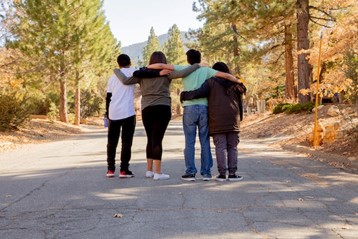For residential therapy programs to truly succeed, they must spend every day preparing their students for the day they leave. Because long-term success relies largely on the development of self-management skills, effective treatment needs to cater to each client’s individual needs.
Alpine Academy Utah reviews that individualized treatment looks at every aspect of physical, mental and social health to determine which innate strengths they can emphasize to overcome their personal mental health struggles. In particular, the Teaching-Family Model excels at individualizing care by developing strong relationships between caregivers and those they serve.
By focusing on long-term self-management rather than acute care alone, caregivers practicing the Teaching-Family Model provide their charges with therapeutic and social support while simultaneously preparing them to become more independent. It all begins with the initial assessment.
How Individualized Care Leads to Long-Term Success
While a majority of residential therapy programs embrace cognitive behavioral therapy as the standard model for successful treatment, some make the mistake of taking a cookie-cutter approach to its actual application. However, research focused primarily on substance users demonstrates why this approach so often leads to recidivism.
Every person who walks into a residential program does so with a unique combination of needs, all of which affect each other in tandem. Those with mental health disorders may find that certain behavioral or emotional triggers become greatly exacerbated when triggered by physical health concerns or negative social interactions.
Not only does individualized care account for various health struggles, but it also accounts for such factors as personal history, personality differences, and racial or sexual identity. For instance, specialty groups provided by an individualized treatment plan might account for:
- LGBTQ+ identification
- Gender-specific issues
- Cultural and ethnic diversity
- Clients with past trauma
- Special education needs
- Hypersexuality
- Struggles with grief
- The need for healthy boundaries
- Lack of social skills
- Emotional regulation
- Poor self-esteem
- Social media dependence
- Fear of transitioning from treatment

The Teaching-Family Model’s Role in Chronic Care
The Teaching-Family Model is a trademarked philosophy practiced only by accredited treatment agencies. Caregivers and their recipients develop relationships that transcend the simple roles of therapist and client. Instead, providers occupy a role in between teachers and family. In a word, they become mentors.
Because of the Teaching-Family Model’s emphasis on relationships, residential treatment programs that choose to adopt it are individualized by their very nature. As mentors strengthen their bonds with their students, they develop the ability to truly understand and empathize with their specific strengths and needs.
Most importantly, this depth of care allows students to feel more at home with their mentors, whereas other treatment models make it easier for clients to keep their guard up and withhold facts or feelings that might prove vital to understanding what they need to achieve long-term recovery.
As individuals continue to learn and grow throughout the course of their treatment program, this style of individualized therapy makes it easier for treatment providers to naturally adjust the care plan as needed. In turn, students and their mentors find it easier to work together to devise a personalized post-treatment plan to ensure a brighter, healthier future.
Conclusion
Programs focused on acute care alone often fall short at helping clients properly transition out of treatment, but individualized therapy helps clients achieve chronic care by equipping them with a diverse skillset to cover all of their mental, emotional and social needs. This keeps them from returning to residential treatment, enabling them to successfully thrive in the outside world.

